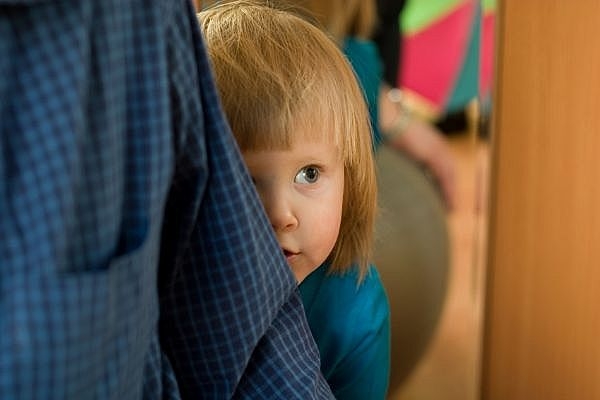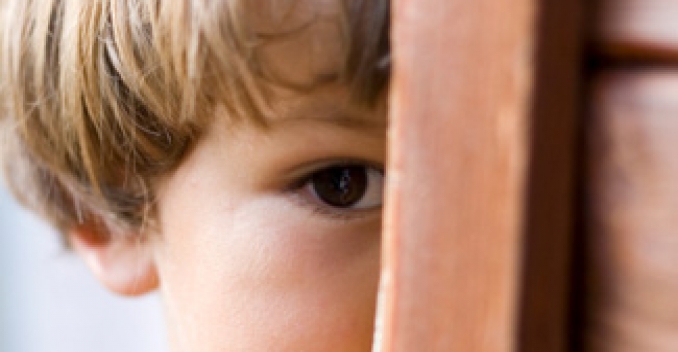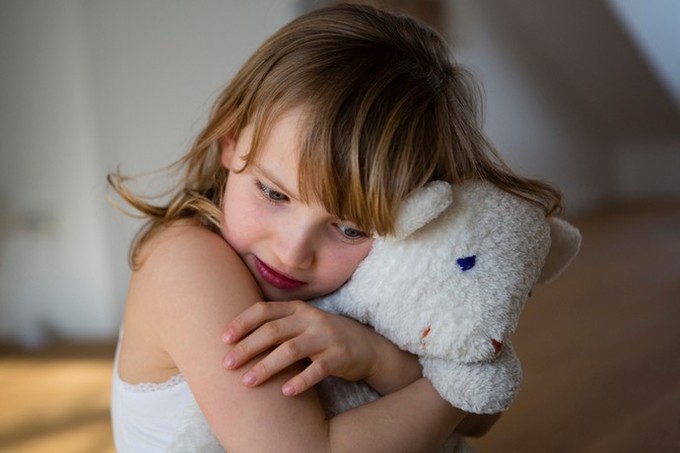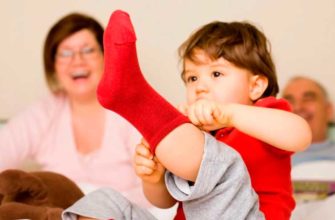Parents take care of the baby, give him all the best, cherish and cherish. Why then does the baby become anxious? What can he be afraid if mom is nearby and everything is fine? Psychologist Natasha Daniels debunks five key myths about anxious children.

Myth 1. Children have nothing to worry about.
Almost all parents whose children suddenly begin to show anxiety say so. Coming to a consultation with a psychologist, mothers and fathers list how they pamper their child, how much they give him what they themselves did not have in childhood. They sincerely believe that crumbs simply can not be cause for alarm.
Parents are mistaken, because they consider only external factors, thinking that some clear reason is needed for anxiety and anxiety. This is not true.Often, anxiety in a child is caused by a genetic predisposition: there are no external stimuli, but for purely physiological reasons, the baby begins to suffer from thoughts about what horrors can happen. An anxious person begins to be tormented by the question: "What if ...?" and although troubles and imaginary, but they bring no less suffering than real problems.
Thus, the child can constantly live in fear and be afraid of some events and situations that have never happened to them and, quite possibly, will never happen.
Thinking about imaginary troubles can bring no less suffering than real problems.
Myth 2. If the child is anxious, the parents are to blame.
People often think that they are better seen from the side. Often they begin to blame the parents for the anxiety of the child. Sometimes even friends and relatives indicate that the child has been spoiled, he needs strict discipline. It is already difficult for parents of an anxious child to accuse them of what happened in most cases is unfair. Because of such comments, parents may even lose heart. However, psychologists say that in most cases, criticism of others is completely unfounded.

Anxiety cannot be eliminated with the help of strict discipline, it is not the result of poor or too soft education. From the side it may seem that the child is rolling in hysterical. Only those around her do not know what caused her, what preceded her. They do not see that the child is barely holding on, and also do not imagine how difficult it is for the baby to fight anxiety every day and often lose.
Myth 3. Anxiety disorders in children - a rarity
Familiar children may not even imagine that he has an anxiety disorder. They can be well-mannered, friendly, study well at school. They generally do not bully and do not cause problems to anyone.Therefore, those around them do not suspect that the child is tormented by constant anxiety.
Teachers at school, distant relatives, but even his close friends are often unaware of the child’s suffering. Usually only the closest relatives know about anxiety disorder, and therefore a stereotype is formed that anxiety disorders in children are rare.
Myth 4. Misconception: when a child grows up, anxiety will pass by itself
Parents of anxious children often hear this advice: "Bear with a little, it will pass when the child grows up." This is said by relatives, teachers who know about the problem. This advice is given even by pediatricians. The kid will grow up, but only his anxiety will remain with him. It will change, take a different form, but will not disappear.
The worst advice that can be given to parents of anxious children: "Bear with it, it will pass with age." Unfortunately, anxiety does not go away with age. It changes and takes other forms, but does not disappear.

Parents should not listen to someone's advice when it comes to calm and generally about the health of the child. You need to go to a professional psychologist, read specialized literature to understand what anxiety disorder is and how to deal with it. After that, parents will be able to explain to the child why they have terrible thoughts, and also teach him how to deal with them. It is advisable to do all this as soon as possible.
Myth 5. Only weak children suffer from anxiety.
This misconception is especially characteristic of popes. Natasha Daniels says that many fathers are ashamed that their children are afraid of something, they are anxious. Usually this applies to sons, whom dads perceive as weak and spineless.
Fathers who are faced with an anxiety disorder in a child need to realize that this problem does not depend on the weakness of character or its absence. In reality, the opposite is true. Anxious children are one of the most daring, because every day they fight with thoughts of imaginary troubles and horrors.
It is very important to combat the misconceptions listed above. It is important to understand that both an anxious child and his parents do not deserve condemnation and criticism. They need the support and understanding of others, not condemnation and criticism.
We also read: 6 reasons why parents are to blame for the child’s anxiety
about the author
Natasha Daniels is a child psychologist and mother of three children.









A lot is being written about the anxiety of children, but everywhere why, then different psychologists or doctors probably judge different opinions based on their own experience. Therefore, to believe in everything that I do not need to write, I generally especially believe psychologists and I consider the information that is presented here to be just not more familiarization.